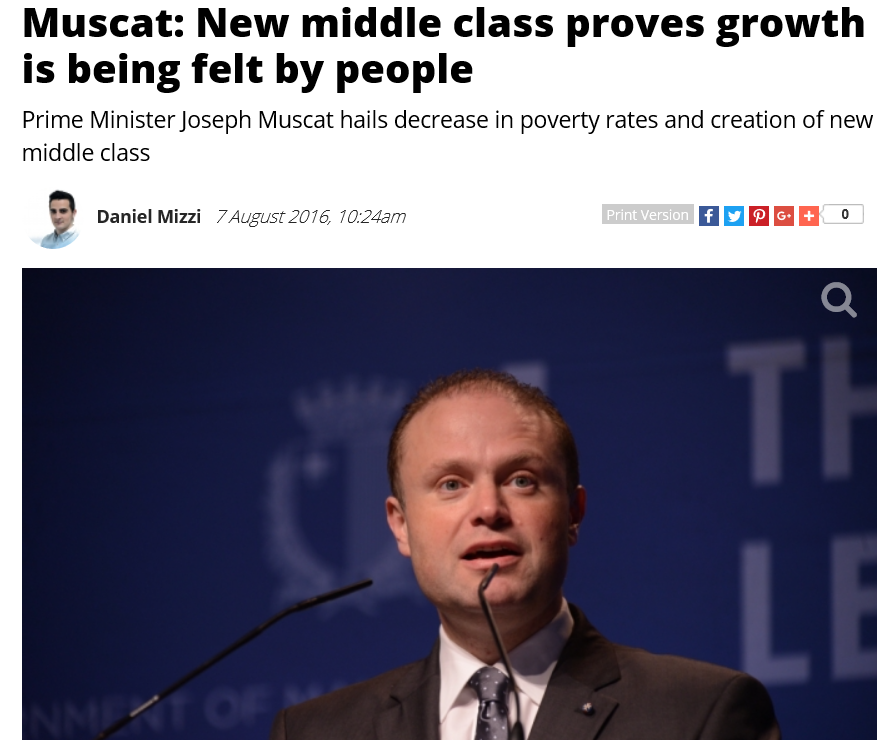He speaks as though it is only money which separates different classes of people
Joseph Muscat said on the Labour Party’s radio station this morning (where he is safe and dangerous journalists can’t reach him with their questions) that a “new middle class” has been formed in the last three years because people are earning more.
He speaks as though the only thing which separates different social classes of people is money. So by his estimation, that would make Jurgen Fenech ‘upper class’, and it would make the son or daughter of a very good old Valletta family, who works as a mechanic, working class.
What separates the classes is not money but culture: values, beliefs, attitudes, manners and mores, and behavioural traits. Joseph and Michelle Muscat have pots of money and are the most powerful people in the land for now, but they are demonstrably working class. Charles Polidano is rolling in it, or at least pretends to be, but he is sub-working-class and his choices demonstrate this, including the decision to have a personal zoo and build that awful place.
At the opposite end of the scale, I know plenty of people who are what can best be described as upper middle class, from families who have been in that bracket for many generations, but who have little to no money.
Even formal education is a thoroughly inadequate gauge. Nobody on either side of my family ever went to university as far back as I can see – it was all army, the colonial service and business – but then they also belonged for the duration to the 10% of the Maltese population (both the men and the women) who were literate, to the 5% of the population who knew English, and to the 2% who were fluent in it. And this led to a generally wider level of education in the proper meaning of the word.
You then have many people from completely uneducated backgrounds – in which they are the third, second or even first generation to have any sort of literacy – who go to university, generally to acquire a law degree, and remain completely uneducated. The Law Commissioner is currently a conspicuous example of this, and he makes a point of demonstrating it whenever and wherever he can.
When pollsters classify people into ‘socio-economic groups’, it’s not to work out how much money they have to spend, but what their values are and how these correlate to their choices. This is particularly important in political surveys. But social change and increased earning power has thrown the correlation between socio-economic groups and shared values out of synch.
Three years ago, extensive research by the BBC revealed just how inadequate the socio-economic groups and social classes which pollsters and market researchers traditionally use have become. The BBC survey breaks down contemporary Britain into seven different broad categories which are far more useful to pollsters, and Maltese society is no different.
Scratch that – there is one aspect in which Maltese society is different. The relevant balance of the social groups is different and therefore so is their influence on shaping Maltese society in general because the island is so small. While there are far more working-class millionaires in Britain than there are in Malta, their influence on shaping British society, British towns, British politics and British government policy is negligible. But in Malta, working-class millionaires are far the most dominant, powerful and conspicuous group.

